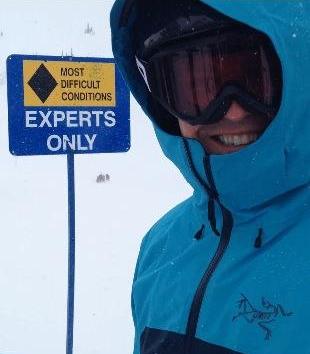Will the Uber business model eventually come to mining? It may already be here. We were recently contacted by an “Expert Network” to set up and manage project procurement for a large mining project in a remote location. Expert Networks have contacted me over the last ten years because of my extensive experience in mining, procurement, contract administration, project controls and project management. This latest request piqued my curiosity due to a few unique factors; the brand name of the consulting firm, the size of the owner, the nature of the work and the service delivery model which looked a lot like crowdsourcing. Combined, these attributes indicated a potential new strategic model for mining project service teams.
Before going further, we should better explain what an Expert Network is: In the last fifteen years, a rather large industry has sprung up facilitating “expert” connections, or providing connections to industry or subject matter experts where a single individual or organization has no pre-existing relationship. These firms will identify experts in each field and then match them with clients seeking project specific expertise. One of these networks uses the tagline, “The Experts at Finding Expertise” which describes their service well. Here is a quick reference to only a few of these networks:
The Expert Network contacted me on behalf of their client, a large name-brand consulting firm. The scope of the initial session was to assist in setting up a project procurement strategy for the owner who had geographical, and financial constraints. They wanted strategic advice about how to organize the most effective procurement team across multiple locations. The initial scope was standard for this type of consultation. The Expert Network then asked about my availability to provide remote procurement and contract delivery services for 10-20 hours per week over the course of this multi-million-dollar project (twenty-four months).
The owner was not planning for any procurement services to be executed on site or at their main office.
Seems like a good way to avoid expensive travel costs, including hotel and camp costs, salary uplifts, rotation challenges, etc. which can be very significant to the total cost of building a remote major project. The owner was not planning to hold in-person interviews which are also expensive and apparently determined they could identify, hire, and manage a team of remote mining professionals via this Expert Network with the help of the internet.
Because we were committed to other projects, we did not put forward a competitive offer. Not surprisingly, we were passed over based on cost despite their best efforts to negotiate a fee significantly below market rates.
When analyzing a challenged project, we often probe to asses if the project delivery team has adequate capabilities to deliver the scope. If not, we then seek to understand how key personnel were identified and hired for the project. Often, we find that people are hired for project roles above their capabilities for multitudes of reasons, cost being one of them.
In contrast, this crowdsourcing approach was profoundly different from another project we recently worked on. The owner was tendering for basic engineering and wanted to qualify their experts by working directly with each of the four bidder teams through a series of workshops designed to test their understanding of the project, capabilities, and ability to work closely with the owner team. The selection process was arduous for the bid team members involved and took weeks to complete. From what we have determined so far, their investment in the selection process is paying off tenfold.
While on the surface, the crowdsourcing model that brings all the experts from around the world together via the internet seems like an efficient and cost-effective way to manage a project, we need to consider the final outcomes of these different models to determine the efficacy of each approach. Who are the professionals qualifying the experts? If project management is trying to utilize the cheapest virtual experts without vetting their expertise, how will they know they are getting the best advice? How will the work be managed and delivered remotely?
Written by John F. Gravel

